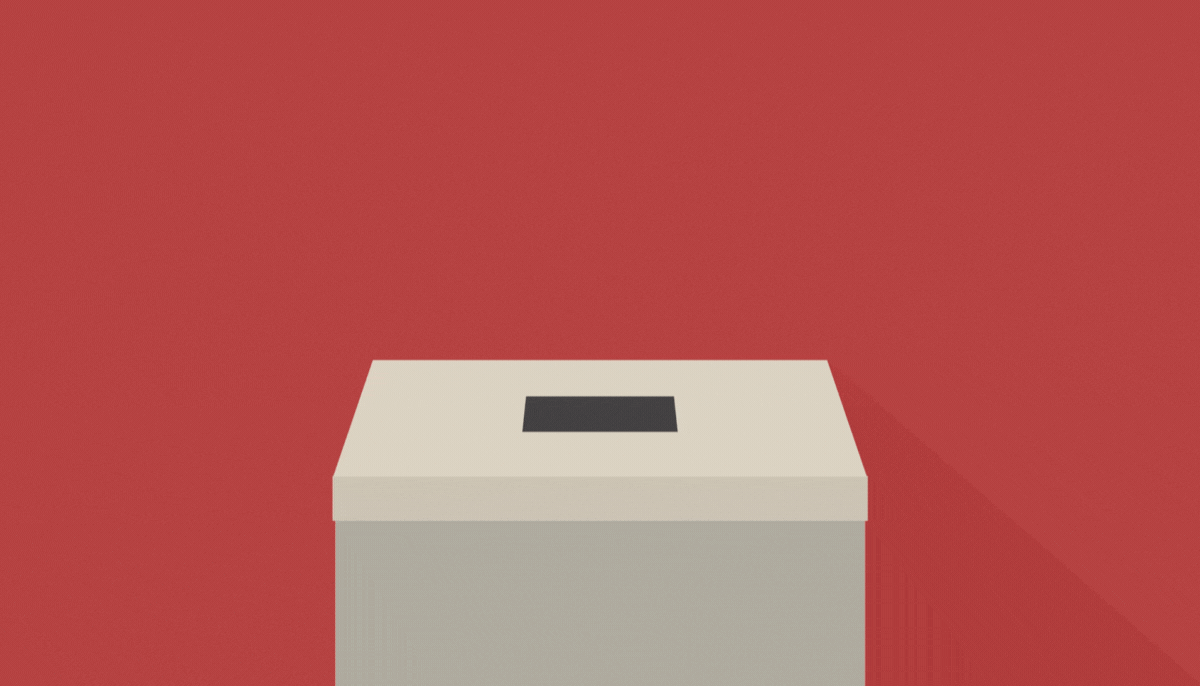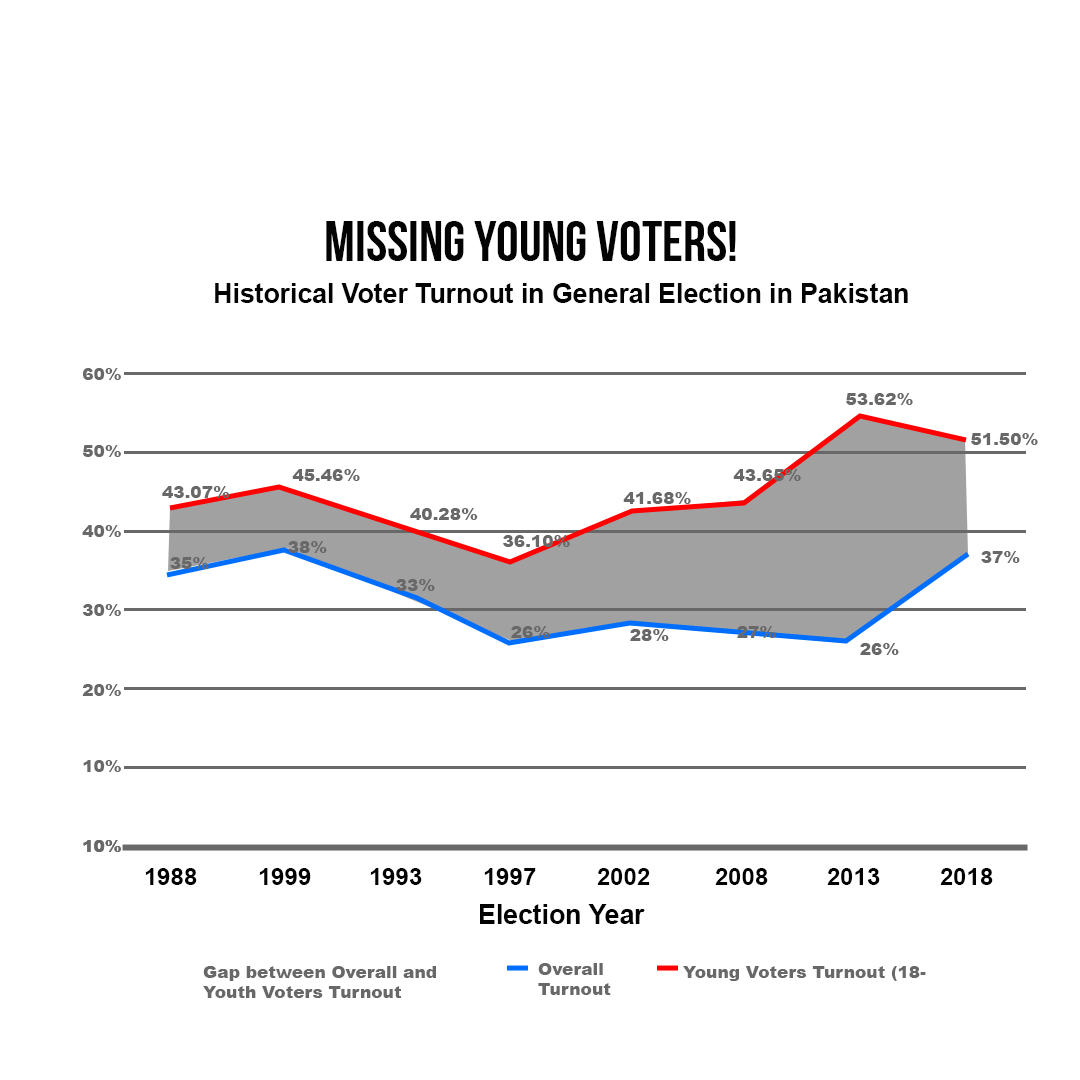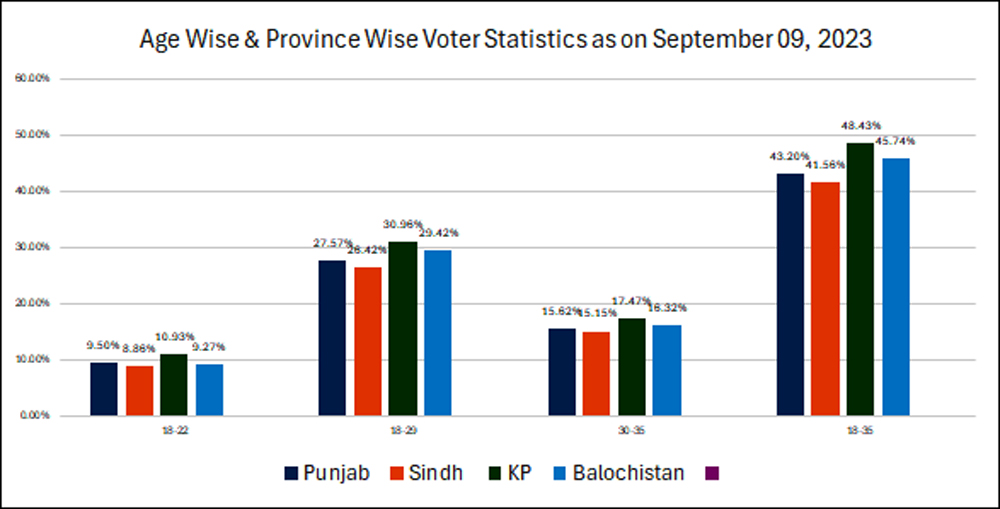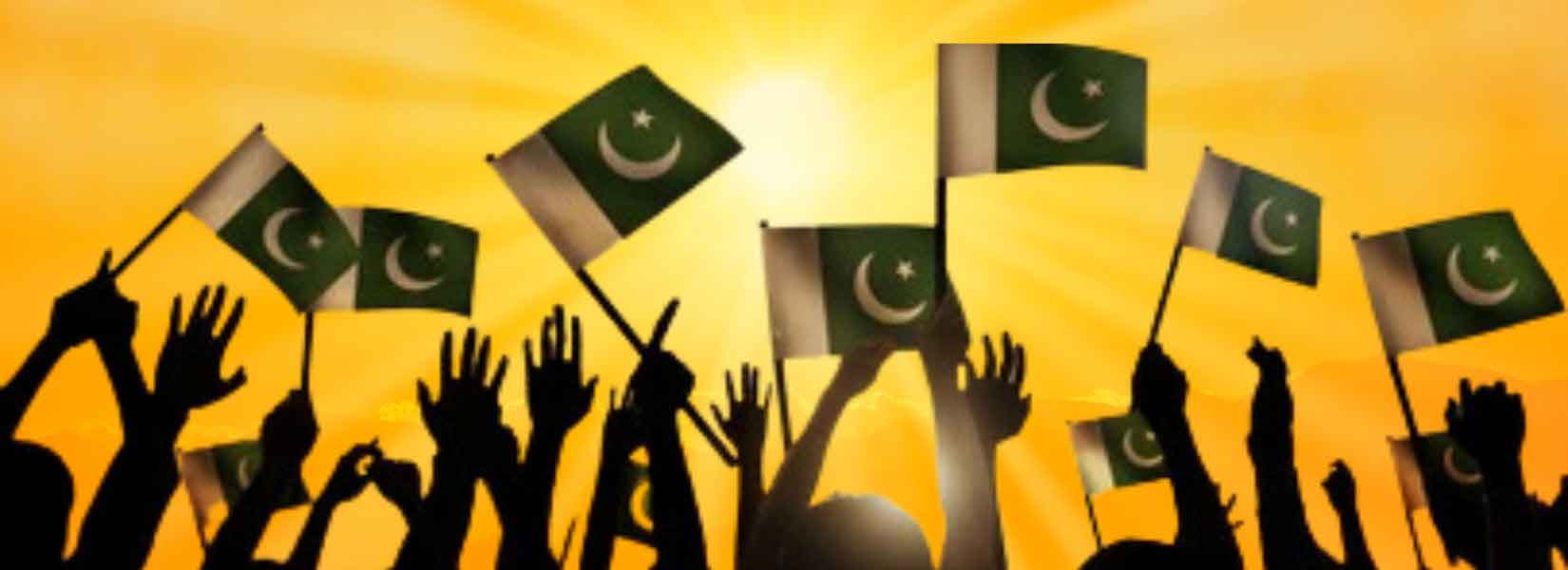Election 2024: Can youth vote their way to promised Pakistan?
Electoral results shape future of country but recent political and economic crises seem to have created disinterest among youth towards exercising their right to vote

Remember, now it is in your hands to put the government in power or remove the government from power; but you must not do it by mob methods. You have the power, you must learn the art to use it; you must try and understand the machinery — Quaid-e-Azam at a public rally in Dhaka, March 21, 1948.
Adnan*, 24, a student of a private university, who will cast his first vote in the general elections of Pakistan, slated for February 8, 2024, is brimming with optimism — and for good reasons.
He believes that every person eligible for voting should participate in the process to become a legitimate stakeholder in “democracy” and that one cannot have opinions regarding any government without playing their part as a citizen of the country.
“It is like getting angry at a company's management without being a shareholder,” Adnan* said in a conversation with Geo.tv.
As someone who will enter the corporate world soon, the youngster hopes the next government to be business-friendly instead of a statist and market-centric one.
The year 2024 is being termed the biggest election year as it will witness 83 elections in different countries across the globe. One of them is Pakistan’s nationwide elections, finally taking place after multiple delays, which will arguably be the most controversial polls of all, as a lot of controversy and unrest has surrounded them for months.
Since its establishment in 1947, Pakistan’s politics and governance system has been plagued by countless such instances when either the elected governments weren’t allowed to complete their constitutional terms or their heads were removed from office unceremoniously.
It happened for one more time when the country plunged into another political turmoil after the elected government led by Imran Khan’s Pakistan Tehreek-e-Insaf (PTI) was driven out of the parliament — with a year and some months left in term completion —following his ouster in a vote of no-confidence in April 2022.
After a new, Pakistan Muslim League-Nawaz (PML-N)-led coalition government was elected to complete the National Assembly’s constitutional term, the country rode the rollercoaster of political and economic crises for the next 16 months.
As if this wasn’t enough, Pakistan was yet again gripped by a constitutional crisis as the polls couldn't be staged within a 90-day period, due to the notification of a new census and the following new delimitations mandatory for electoral politics.
After much drama and deliberation, a date was finally decided with the judiciary’s intervention, and now the country is set to stage the much-awaited general elections on February 8, with over 128.5 million voters to decide its fate for the next five years.

The electoral process is the key instrument in the continuation of democracy and its results decide how the country will perform in the next five years.
Right to self-determination
The 1973 Constitution of Pakistan has bestowed upon every citizen of the country, the right to self-determination, and everyone is duly encouraged to exercise this right to ensure impartiality and inclusiveness in shaping the future of the country.
According to ECP, casting votes is not just a fundamental right of the citizens but also a national duty that the commission urges must be fulfilled.
ECP spokesperson Haroon Khan Shinwari stresses that “every single vote holds significant importance” as it plays a crucial role in decision-making on behalf of the masses.
“Citizens are urged to actively engage in the electoral process, contributing to the democratic framework and ensuring their voices shape the future of our nation,” Shinwari told Geo.tv.
Though each faction of the society contributes to the electoral process, the largest group of registered voters comprises of age group 18-35, which is 45% of the population eligible for voting, as per Pildat.

This age group defines youngsters, who have the most stakes in electoral politics.
“Youth’s disinterest depresses the voter turnout and weakens the representative democracy,” Pakistan Institute of Legislative Development and Transparency (Pildat) President Ahmed Bilal Mehboob said in a conversation with Geo.tv.
He believes that votes from youngsters “can be a game changer” in elections but raised the question “will the youngsters come out to vote”?
“Youngsters are active [in expressing their opinion] on social media but they usually don’t vote,” he said.
It may be noted that the economic instability and shrinking opportunities drove over 80 thousand skilled and unskilled Pakistanis out of the country in 2022, the highest volume of immigration since 2016.
Deteriorating conditions afflicted this group who we call the young, working Pakistanis, resulting in sheer disappointment in the system, if not a lack of interest in expressing their opinion through the ballot.
Disinterest in voting
Mehboob pointed out that the political parties claiming to represent the youth often lagged at the time of ticketing for the elections. He also called for restoring student unions, which he said was an effective way to raise awareness among youngsters on casting votes.
Karachi University’s Peoples Student Federation (PSF) Coordinator Ali Haider voiced similar concerns. He said voting was crucial for shaping the future of a country but the students were not showing enough interest in the upcoming elections — neither as electives nor electors — due to the absence of student unions, despite big claims by previous leaders to restore these bodies.
“Upcoming elections can and cannot be revolutionary for youngsters, depending on how good the developments and policies next government brings for them,” Haider added.

Nevertheless, he said students believed in electing their representatives and expected favourable policies in the educational institutions under the next government.
Islami Jamiat-e-Talaba spokesperson Advocate Muneeb Ahmed is of the view that individual votes may seem small but collectively, they can bring about a significant change and reflect the will of the people, establishing a vibrant democracy.
“Witnessing the past year, students are not much hopeful due to the political unrest and stress in civil-military relations. All these scenarios affect the economy and law and order, consequently affecting the youth,” he said.
However, Ahmed stated that despite frustration and apathy towards the upcoming polls, there was still hope among students as they see elections as an opportunity to voice their concerns and influence the future.
Meanwhile, All Pakistan Muttahidda Students Organization (APMSO) joint in charge Sharjeel Baig Mughal believes that it would be the students only who would cast their vote thoughtfully keeping the development of Pakistan in mind.
"This time, the students will ask this question that why are the fees in their educational institutes are increased again and again. Only the one who will make education system better and enlighten the future of Pakistan, will succeed in elections," he said.
Sharjeel said if free and fair polls are staged this time, it is possible that this would be the last election of those "who ruined the education system in Sindh during the last 15 years".
'Stakes are high'
Speaking to Geo.tv, PML-N senior leader Mohammad Zubair said Pakistan had undergone a major generational change in terms of circumstances and expectations in current times. He said that today the youth was comparatively more connected to the world and opportunities available out there, than the people from some decades ago.
“Having far greater stakes in electoral politics, the youth are the most affected by how well or bad Pakistan does in future, as they have to spend the next 30-40 years of their lives here. The risk is far greater for them than the older generation,” he said.
Zubair said that the youngsters needed to understand that the more they would participate in the electoral process via their votes the better the future would be for Pakistan in terms of employment, economic growth, education and other social indicators.
As for the political parties, the PML-N leader pressed all to understand the generational gap and connect it to the aspirations and expectations of youngsters.
Young voters
As per ECP, there are 55 million (5 crore) voters with the age bracket of 18 to 35 years.
Recognising the significance of this substantial demographic, the electoral body has proactively directed its efforts towards voter awareness targeting students, civil society, and the media to educate them about the influential role they play in the electoral process, emphasising the impact of their participation.

The ECP spokesperson said that they conducted nearly 2000 awareness workshops in schools, colleges, and universities nationwide over the last 23 months.
As per the ECP’s list of registered parties for the next year’s electoral process, there are 175 parties representing a diverse spectrum in the political arena, but none of them seems to have a majority support of the masses and the winning parties will likely form a coalition.
After nearly two years of political uncertainty and faltering economic and social conditions, let’s hope the country gets a strong competent government that works for the betterment of the people.
Let’s also pray that whoever wins and forms the government, gets to complete the constitutional term, while meeting the expectations of the masses that have put their trust in it through their votes.
Disclaimer: *represents a change in the name of the person interviewed to protect identity.
Mehreen Ansari is a staffer at Geo.tv. She tweets @MehreenAnsari17




